Elysia Lumen Strife's Blog, page 2
September 16, 2022
Author Interview: Michael J. Brooks, Science Fiction
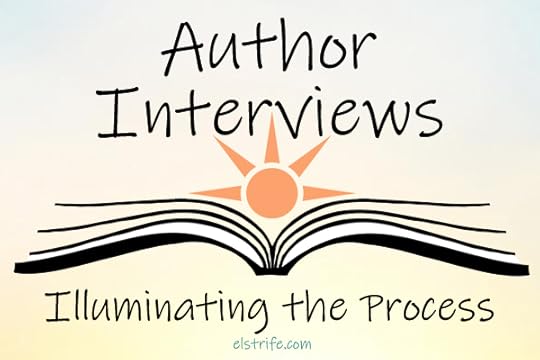
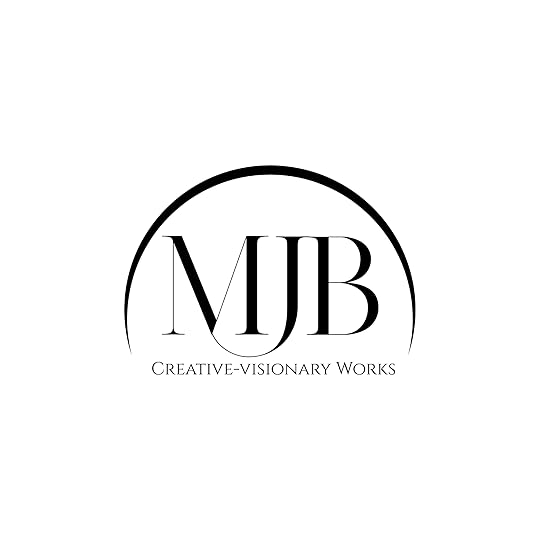
My name is Michael J. Brooks. I am a science fiction author. My most recent work is Republic Falling: Advent of a New Dawn (book #1 of the Wars of the New Humanity series). Currently in progress is Republic Under Siege: Threat from Within (book # 2 of the Wars of the New Humanity series).
From Planning to PublishedAre you indie, traditional, hybrid, or vanity, and why?
Author: I am an independent author. Being independent, I don’t have a publishing company influencing my work, and I don’t have to send submission after submission and get rejection after rejection before publishing, or seek out an agent to get my work into publishers’ hands. I can cut out the middle man and release my work when its ready.
What platforms do you use to publish your works?
Author: My work is published on Amazon (ebook and paperback) and Barnes & Noble. Ingram Spark is my wholesale distributor and allows my books to be available online through multiple retailers, and possibly get picked up by book stores.
How do you get critiques, betas, feedback, and edits?
Author: Reedsy is a great marketplace to find editors, but the professionals on Reedsy can be expensive. Fiverr is a good place as well to find editors, and you can find some there who are less expensive than Reedsy but are still great. You can also find beta readers on Fiverr.
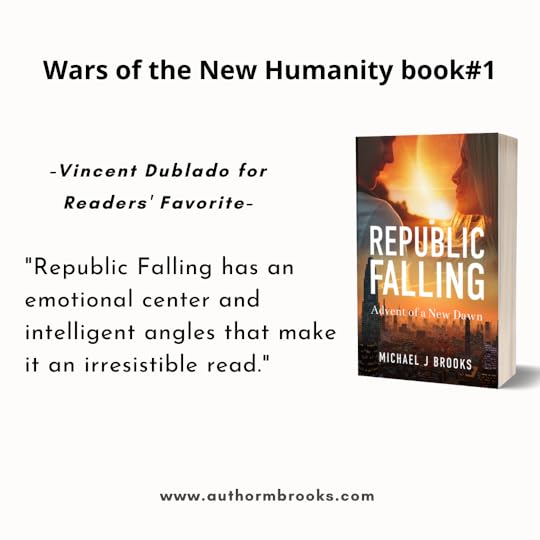 Marketing
MarketingDo you have a platform? What does it consist of?
Author: I have a website and social media platforms that I use to promote my books and communicate with potential readers and my fans.
How do you get reviews for your books?
Author: In the past, I got reviews from groups on Goodreads or Facebook, sending people free books for a free, honest review. Now, I have discovered Book Sirens and NetGalley, which allows readers and reviewers to read advanced reader copies (ARCs) of authors’ books, and then those readers and reviewers post their reviews to sites like Amazon when an author’s book is released. A lot of big publishing companies use NetGalley. There is a cost associated with both websites, Book Sirens and NetGalley, but I intend to include them in my marketing budget. I am excited about using these sites in the future to see what results they bring.
Also, I enter writing competitions, like the BookLife Prize and Readers’ Favorite’s competition, which, even if you don’t place in any of their categories, you get a critic’s report/critique that you can use for marketing.
How do you promote your content?
Author: I promote my content through social media and the use of Amazon ads.
What do you think is the most critical marketing component or tactic for becoming successful?
Author: I think the most critical component is getting reviews and praise pre-release and getting reviews after the release of your book. Reviews are social proof of the quality of your work.
About Your WorkWhat genres and subgenres do you write in?
Author: I mainly write science fiction but intend to write some urban fantasy and fantasy in the future.
How many works have you published?
Author: I have published three works: Exodus Conflict, Exodus Conflict: New Genesis, and Republic Falling: Advent of a New Dawn. My latest work, still in progress, is Republic Under Siege: Threat from Within.
Can you tell us a bit about your most recent publication?
Author: Republic Falling: Advent of a New Dawn is book one of the Wars of the New Humanity series, a page-turning sci-fi thriller that explores socioeconomic hierarchies, class warfare, ascribed status, group identity, war politics, and more, in a world where humanity wages battle in mechanized combatwear called Shells, humans Link in mental communion, and life throughout the universe is vast.
In the book, Randal Scott, Guardian of the Commonwealth Defense Force (CDF), wants nothing more than to deliver retribution to the man who killed his mother and mentally scarred him forever. That man is his father, former CDF captain, Arson Scott. After establishing a wonderful life for his family and nurturing Randy into manhood, Arson mysteriously joined the insurgency threatening to collapse humanity’s intergalactic republic and partook in his wife’s murder. Randy’s lover, Guardian Stacie Spencer, also enlists into the CDF for personal reasons, to forge a life free of her aristocratic parents’ control. She will shape her destiny, no one else.
Now Randy and Stacie, who are Linked (joined in mental communion), enter a bloody war that has Randy questioning both of the combat forces in opposition, the CDF and the insurgency known as the Coalition of Rebel Factions.
What do you want your readers to get out of your works?
Author: I hope that the themes within my work will resonate with readers. For example, Republic Falling explores the theme of seeing things from the perspective of others to sympathize with their misfortune.
What part of the author process are you working on or studying most now?
Author: The part I am working on the most is marketing. Marketing is how authors get books in the hands of readers. So I am constantly studying how to market my books, and I am always looking for new ways to market my books.
Which authors write similar books to yours? How did you find them?
Author: WC Bauers, William C Dietz, Linda Nagata, David Weber, Nicholas Sansbury, Richard Baker, and others. I found them by browsing books on Amazon and Scribd.
Have you always read in the genre you wanted to write in? Do you think that’s made it easier or harder to create new stories?
Author: Yes, I have always read in my genre. It makes it easier to create new stories because those books provide influence and inspiration and lead me to new ideas. Therefore, I am always reading science fiction, to continue to learn more about writing the genre.
What is your writing process, from idea to polished work? Pantster? Plotter? How long does that typically take you?
Author: I am what you would call a pantster or gardener. I’m not like an architect who can develop and outline of a story from beginning to end and then write it. I start with an idea for a story, and then that idea grows as I write. The same is true with my characters. I’ll have an idea for a character, then as I write that character, they grow and change and I discover who they are.
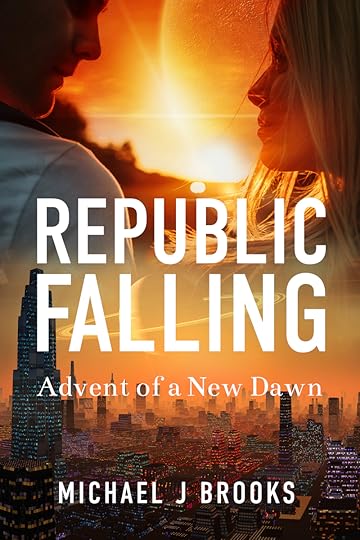 Struggles
StrugglesWhat has been the hardest thing to overcome on your journey to authorship?
Author: One of the hardest things to overcome would be watching my book not get any sales at times. Sometimes you start to question yourself and your skills. But I believe that selling books has a lot to do with not only writing skills but marketing as well. Another hard thing to overcome is the stigma that comes with being an independent author. I feel independent authors’ books get stigmatized as being “low quality.” And yes, a lot may be low quality in terms of editing and story development, but not all of them. I believe it is up to us independent authors to put out good quality to fight that stigma.
How do you combat writer’s block?
Author: I combat writers block by stepping away from the computer and doing something I like, such as working out or going on a run. What also helps me is reading science fiction books as I write my book, which is something I do constantly to get influence and ideas, and discover new verbs and adjectives that I might use.
What literary/writer-based term did you not know when you started that has become important and relevant to you?
Author: When I first started independently publishing back in 2012 I wasn’t aware of these terms: advanced reader copy (ARC), blurb, query letter, sell sheet, developmental edit, line edit, copy edit, beta reader. These terms are definitely important for me as an author. They are important to competence of the profession.
Fun StuffWhere do you write your stories? A tiny office? A loft? The kitchen table? In the bushes while you secretly people-watch like a total creeper? Or a warm café with mocha in hand and feet up on an ottoman?
Author: I write in my home office or coffee shops. I love coffee shops!
What book are you reading at the moment?
Author: I am currently reading Blood and Steel by Josh Hayes and Devon C. Ford and 36 Streets by T.R. Napper.
What have you learned about yourself from the writing and/or authorship process?
Author: I have learned that I am an exceptional world-builder, as told to me by critiques and editors.
What is your favorite writing snack and drink?
Author: Coffee or an energy drink like Zoa, Monster, or XS.
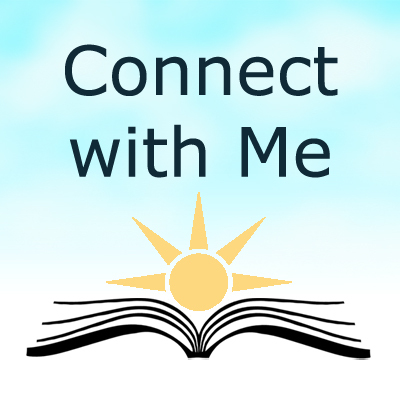
How can readers follow you and learn more about your books?
Author: They can go to www.authormbrooks.com and they can follow me on Twitter at @AuthorMBrooks.
August 25, 2022
Author Interview: Steve Brock, Mystery

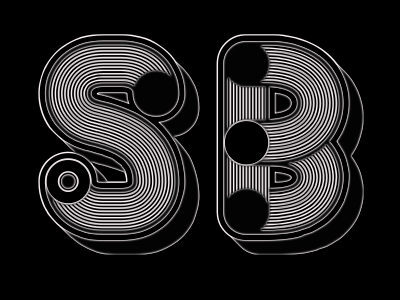
I’m Steve Brock. My first novel is Half Moon Lake, which I would say falls into the mystery/conspiracy genre.
From Planning to PublishedWhen did you start writing and why?
Author: I’ve always wanted to be a writer, but life intervened when I was young. Last year I realized that at 61 years old I was running out of time, so I made the time to do it.
How long did it take you to finish your first book?
Author: I began the first of September last year and finished the manuscript just after the new year. Once that was complete There was the editing, both mine and a professional editor I hired. That process took another couple of months. Then there was hiring a book cover designer and working with him. Finally, figuring out how to actually publish the finished book took more time. All together it took about seven months. I think the next one will be quicker though.
Are you indie, traditional, hybrid, or vanity, and why?
Author: I published independently this first time. I didn’t feel like going through the process of trying to find an agent. My understanding is that can be an arduous task, and I was prepared to take on the publishing process on my own. I was also told that traditional publishing has been slow to change with the times and a lot of authors previously published traditionally are now choosing to go independent.
How do you get critiques, betas, feedback, and edits?
Author: I was lucky enough to have a relative who is a long-time friend of an author who has published 58 books so far. I was introduced to her and she was more than willing to help me along the way, offering advice and critiques as I progressed. Without her assistance, it would have been much more difficult to know how I was doing during the writing process.
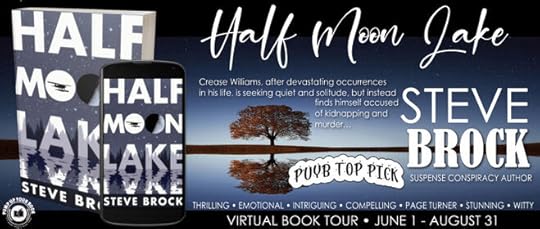 About Your Work
About Your WorkWhat genres and subgenres do you write in?
Author: This is my first novel and it happens to fall into the mystery/conspiracy genre. I’m not going to say that is the only genre I’ll write, however. I actually have a couple of new book ideas that I’m working on that would perhaps cross genres into science fiction. I say cross genres because if I write the book as I have it in my mind I wouldn’t consider it totally science fiction, but it would contain elements of SciFi.
How many works have you published?
Author: This is my first published work although I have been writing all my life, both for pleasure and for work.
Can you tell us a bit about your most recent publication?
Author: The book is titled Half Moon Lake. The story revolves around the main character who has life all laid out in front of him until a personal tragedy causes him to leave it all behind. He moves far from his home and begins a life of solitude working as a float-plane pilot flying people in and out of remote locations in northern Minnesota. His new life gets upended when he is accused of being involved in the disappearance of a group of campers he flew to a remote cabin. To make matters worse, a rival from his past reappears with vengeance on his mind.
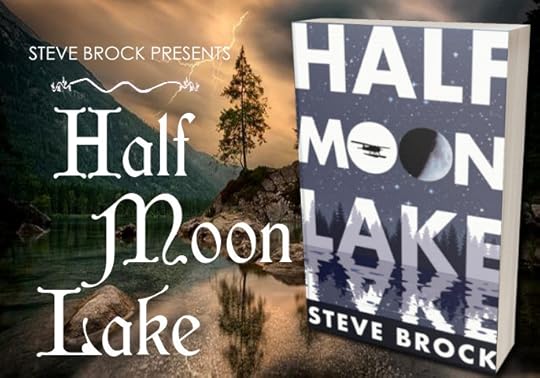
Do you have other supporting services like a podcast, blog, webinars, courses, video channel?
Author: I do not, but it’s early and I’m still learning what might work best for me.
Do you recommend any programs, courses, or websites?
Author: Yes. I took a course that is offered through The Great Courses channel on Amazon. The courses they offer include just about any topic you can think of. They are college-level courses usually consisting of a series of lectures presented by a college professor. I found a course titled, How to Write Best Selling Fiction. It was very well presented, and I learned a lot from it.
What is your writing process, from idea to polished work? Pantster? Plotter? How long does that typically take you?
Author: I’ve found I like to start with creating a main character first. After that I work on a plot, but I’m not totally a Plotter. I like to know where I’m taking a story before I write, but I don’t require the whole thing to be worked out before I begin. I also find as I write I come up with ideas to make the story better.
Do you sprint-write like a starving cheetah, or are you a totally chill turtle writer? Somewhere in between?
Author: When I was writing this novel I tried to write every day, and for a while I set a daily goal for myself. That was helpful during the beginning of the writing process, but as I got closer to the end, and the whole story was complete in my mind, I found I didn’t need a daily goal any longer. There were days toward the end when I wrote into the midnight hour.
StrugglesHow did your family and friends react to your writing? Was it what you expected from them?
Author: Other than my wife, who knew I’d always wanted to be a writer, it was a total surprise to the rest of the family when I told them I had written my first novel. The immediate response was typically “I want to read it”, I don’t know if that was because they thought it would be a train-wreck they just couldn’t help but look at it or not. Of course, they have all been very complimentary after reading it, and they ask if I plan to write another one.
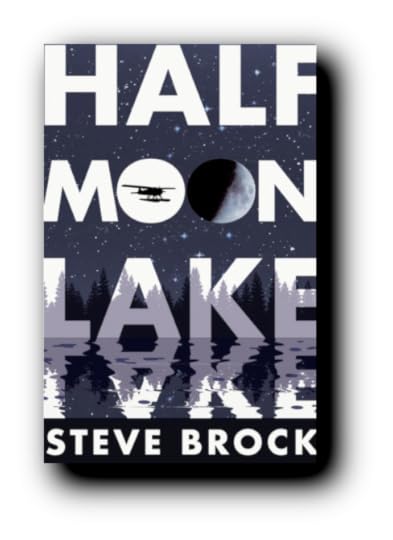
Fun Stuff
What do you listen to while you write?
Author: I always have the TV on in the background. I find a program I’m only marginally interested in and I write as it plays. Usually, I find when I finish writing that the program had ended long ago and I don’t know what is currently on. I can’t write in silence, I need that background noise.
Where do you write your stories? A tiny office? A loft? The kitchen table? In the bushes while you secretly people-watch like a total creeper? Or a warm café with mocha in hand and feet up on an ottoman?
Author: Most of the time I write on the family room sofa. I do have an office I retreat into when necessary. I don’t always write using my laptop. I really enjoy the tactical experience of putting pen to paper. There are several scenes in my book that I wrote by hand using my favorite fountain pen and journal. I would type those scenes into the computer later. Sometimes I find writing by hand is not only enjoyable, but it slows down my thought process when I’m working on a section that I haven’t completely worked out in my mind.
How can readers follow you and learn more about your books?

Author Website: BrockNovels.com
Book Sales Pages: Half Moon Lake on Amazon
August 18, 2022
Author Interview: Jennifer Chase, Crime Thrillers

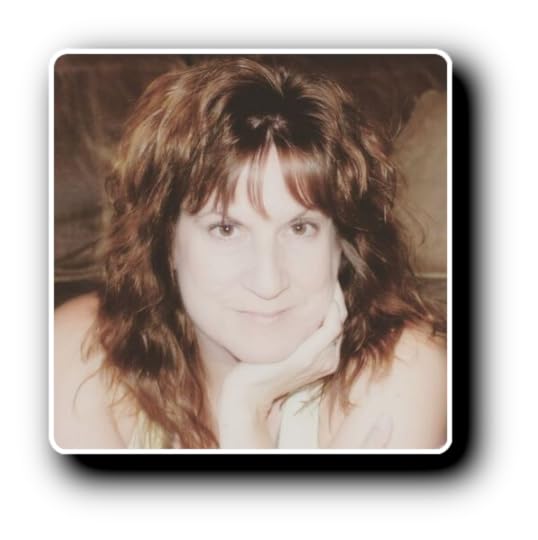
My name is Jennifer Chase and I write crime thrillers. My latest release is Silent Little Angels, which is book number seven in the Detective Katie Scott Thriller Series. The series revolves around a cold case detective, ex-Army K9 explosive handler, who is tracking down killers in a rural California Mountain town.
From Planning to PublishedWhen did you start writing and why?
Author:
I have always LOVED books for as long as I can remember. I wrote stories, articles, and a dozen screenplays, but I had my ambition on writing novels. I worked in the corporate world for a while, but my thoughts weren’t far from a crime fiction storyline. One day, after I had written by twelfth screenplay, I began to outline another storyline and series, but this time I wrote my first novel Compulsion. From that time, I never looked back.
How long did it take you to finish your first book?
Author:
My first book took the longest because I did an extensive outline process. I was also thinking that down the road, this would be a series. There was quite a bit of information and background that wasn’t part of the first book. From outline to the first draft, it took me about six months to write my first novel.
Are you indie, traditional, hybrid, or vanity, and why?
Author:
I began as an indie author and worked hard to get my series out there. It’s not that I never wanted to be traditionally published, but I was working hard and seeing results. At that time, many of the available publishing houses didn’t take unsolicited manuscripts, and the ones that did, it took months to hear back. So I forged on until I was contacted by a publisher who asked me to pitch a crime series. I was excited and optimistic because I had a series that I wanted to write—the Detective Katie Scott Thriller Series. Publishing is much more open and friendly to authors wanting to submit their books today. I would say it has definitely changed in the last five years, which is fantastic. So now, I publish both indie and traditional.
What is your publishing process?
Author:
I outline all of my stories. It’s a loose overview, like a roadmap, where I can see the crimes and clues clearly making it clear where each suspense-building aspect is needed. It makes my writing that much easier and my first draft isn’t a complete wreck.
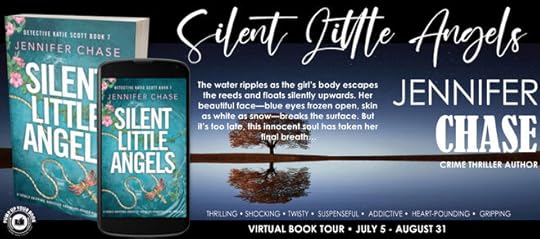 Marketing
Marketing What is your launch plan for your works?
Author:
Planning is key. A new release requires a pre-order, which has been very successful for my series. I do at least one virtual blog tour, create tweets and posts for social media, email my subscribers, make fun one minute book trailers, and use my blog as the jumping off point.
How do you get reviews for your books?
Author:
There are several ways I get reviews besides from readers who buy the book. NetGalley is a great way to get more book reviews—generally the reviewers will also post to GoodReads and Amazon as well. I also contact book reviewers I’ve had in the past to see if they would like to review my latest book. That’s a wonderful way to get reviews before you book is published.
How do you define success as an author?
Author:
I think that varies. There’s not just one definition for success. For some, having published books and selling copies is successful. For others, selling a million books is successful. I feel that if you’re writing books, with good reviews, and readers are buying them—that’s successful.
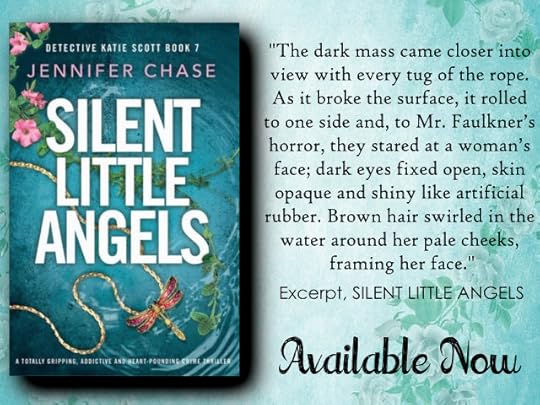 About Your Work
About Your WorkWhat type of content do you write and why? Fiction Novels? Poems? Songs? Screenplays? Short Stories? Epic?
Author:
I write novels mainly, but I’ve written short stories, novellas, and screenplays. I love writing anything in the crime, thriller, and suspense genres. I’ve been influenced by the 80s action films so my novels definitely have some action in them.
How many works have you published?
Author:
I have published sixteen novels, two short stories, and one non-fiction workbook.
Can you tell us a bit about your most recent publication?
Author:
My latest book, Silent Little Angels, a Detective Katie Scott thriller, is a crime fiction series about a cold case detective and her K9 set in a rural California mountain area. The latest installment is the seventh book, but all my books can be easily read as a stand-alone.
Here is the synopsis for Silent Little Angels:
The water ripples as the girl’s body escapes the reeds and floats silently upwards. Her beautiful face—blue eyes frozen open, skin as white as snow—breaks the surface. But it’s too late, this innocent soul has taken her final breath…
When camp counselor Carolyn Sable’s body is found floating in a lake beside Eagle Ridge Summer Camp, Detective Katie Scott must dig deep to stay focused. As a child, Katie spent many happy weeks at that camp toasting marshmallows on the fire with her best friend Jenny… until the day Jenny disappeared. The loss will always haunt Katie, but Carolyn’s inconsolable family need answers.
Searching the area, the devastating discovery of two more bodies sends the case into a tailspin. Suddenly on the hunt for a serial killer, Katie’s blood turns to ice when she finds newspaper clippings about her own past cases planted near one of the bodies. Was this twisted killer banking on Katie taking the lead? And why?
What has been the hardest thing to overcome on your journey to authorship?
Author:
Time. I actually struggle with procrastination, so it’s been my nemesis for a while. I’ve been learning to see only what I have to do tomorrow and what I need to accomplish today.
How do you keep yourself motivated?
Author:
The ideas and storylines that I write down help to keep me motivated. I feel that I would never run out of ideas.
How do you combat writer’s block?
Author:
I don’t feel, in my opinion, that there’s a real thing called writer’s block. If you think you’re struggling from it, then you don’t have a complete story. Step back from your project. Begin another. Or just take more time organizing your story that you’re having problems with.
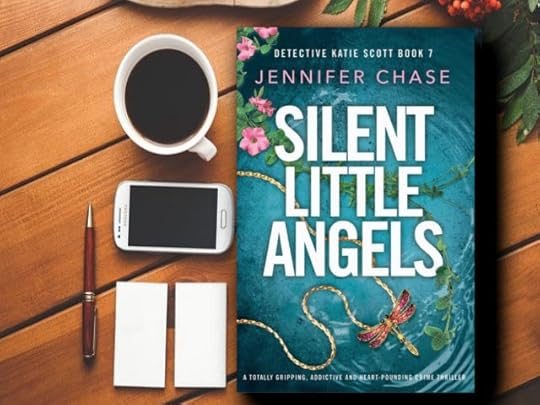 Fun Stuff
Fun StuffWhat do you listen to while you write?
Author:
When I’m writing, I listen to piano classical. When I’m editing, it’s all quiet on deck.
Where do you write your stories? A tiny office? A loft? The kitchen table? In the bushes while you secretly people-watch like a total creeper? Or awarm café with mocha in hand and feet up on an ottoman?
Author:
I can write anywhere, but mostly I write in a small office in my house surrounded by things I love–books. There’s a big window where I can see outside at the trees and grass. It’s really relaxing. I create most of my ideas at my desk and I don’t usually write on a laptop, but a desktop computer. It sounds old school, but it’s comfortable and it makes me productive.
Do you have a writing companion?
Author:
I have two German shepherds and they take turns being my writing buddy.
What’s the best piece of advice you’ve ever been given?
Author:
Don’t let anyone tell you what you should be writing. Write what inspires and excites you.

Author Website:
https://authorjenniferchase.com/
August 11, 2022
Author Interview: Jeanette Baker, Women’s Fiction

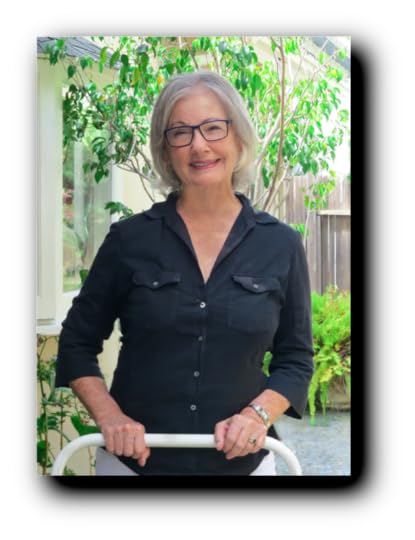
HI, I’m Jeanette Baker, author of the women’s fiction book Birthright.
From Planning to PublishedWhen did you start writing and why?
Author: I started writing in 1990. I went to my 20th class reunion and connected with a friend of mine. She had published 9 books. No one I’d ever known personally was a writer. I thought about writing a novel and decided to do it. What did I have to lose?
How long did it take you to finish your first book?
Author: 6 months
If you’ve published, how long did your first book take?
Author: My first published book took exactly one year.
Has your publishing timeframe improved at all since your first publication?
Author: No. The exact opposite happened. My timeframe now takes longer.
Are you indie, traditional, hybrid, or vanity, and why?
Author: I have published by multiple methods: traditional, indie, hybrid. Times change.
How did you determine your target audience?
Author: I wrote the kind of books that I liked to read. I assumed people who read that genre of book would enjoy reading mine.
What is your publishing process?
Author: For Birthright, I worked with Teri Rider of Top Reads Publishing, a hybrid publisher. She basically took care of all the publishing aspects of the book.
What platforms do you use to publish your works?
Author: Since Top Reads has traditional distribution, my book is available in print and ebook on all the major retailer sites like Amazon, Barnes & Noble, iBooks, etc.
How do you get critiques, betas, feedback, and edits?
Author: I’m fortunate to have a publisher who knows how to do everything.
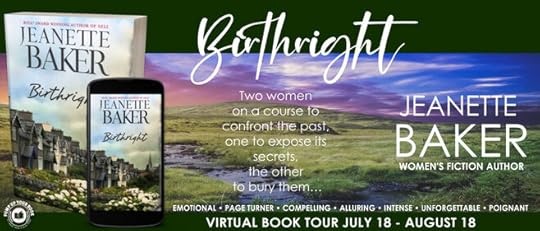 Marketing
Marketing What is your launch plan for your works?
Author: My publisher ran several promotions for my backlist leading up to the launch of Birthright so there was already some interest in the book. And we are currently running a virtual book tour which lets even more people know about the new release.
What do you think is the most critical marketing component or tactic for becoming successful?
Author: Keep writing what interests you and what you know.
How do you define success as an author?
Author: In the beginning, it’s the reviews, then the numbers, then, for me, it’s those wonderful fans who read everything I write.
About Your WorkWhat type of content do you write and why? Fiction Novels? Poems? Songs? Screenplays? Short Stories? Epic?
Author: Always fiction, contemporary, historical and paranormal. The possibilities are endless.
What is your author brand (genre, mood, image, theme, message, etc)? How did you decide on it?
Author: I’ve moved around. Originally, it was Scottish historical fiction, then Irish and Scottish paranormal, then Irish and Scottish contemporary, then American historical and contemporary.
How many works have you published?
Author: To date I have published 20 books.
Can you tell us a bit about your most recent publication?
Author: Birthright is the story of two women continents apart, one who is desperate to know the other and the other just as desperate to never be found out. My website, Jeanettebaker.com has quite a bit more detail. I encourage you to visit.
What was your first goal when you started your journey to becoming an author? Has that changed?
Author: I had only one goal, to be published.
What do you want your readers to get out of your works?
Author: An appreciation of another land, another life, a world different than the one they have.
Do you recommend any programs, courses, or websites?
Author: I always recommend classes, going to author events and conferences and frequent reading.
Which authors write similar books to yours? How did you find them?
Author: Kristin Hannah, Barbara Erskine, Diana Gabaldon, Louise Penny.
Have you always read in the genre you wanted to write in? Do you think that’s made it easier or harder to create new stories?
Author: Yes, definitely easier.
Where do you network most with other writers, authors, and creative types? LinkedIn? Wattpad? Twitter? Facebook? Somewhere else?
Author: I started with a critique group, two talented ladies who were published. We stayed together for 20 years.
Do you sprint-write like a starving cheetah, or are you a totally chill turtle writer? Somewhere in between?
Author: I would say in the middle. I’m a fairly consistent writer and complete a certain amount of pages every day with some exceptions. I don’t have all-nighters and I tend to review what I’ve written the day before to be sure I got it right. This technique has been a life-saver.
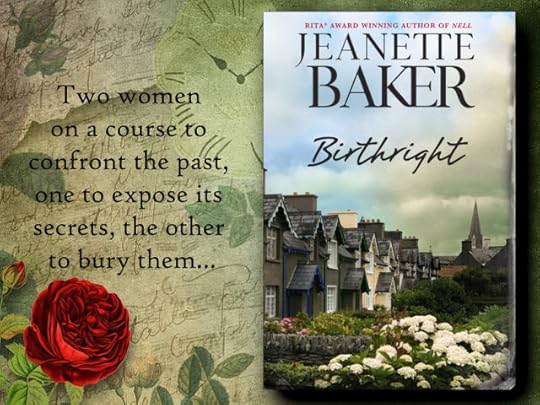 Struggles
Struggles How has the writing and querying or publishing process affected you emotionally? Do you have any tips for budding writers?
Author: I don’t know if tips play out in my answer but I will say that writing is much more relaxing if you aren’t the parent of small children, or children who need help with homework or if you have a day job or have a husband who isn’t completely on board with your disappearing into the office daily. It can be done, but it’s not easy.
If you could do it all over again, what would you change?
Author: I would keep a single brand until I was a New York Times, best-selling author.
Are you a driven & self-advocating author, a gun-shy promoter, or a total marketing procrastinator?
Author: A gun-shy promoter
How do you keep yourself motivated?
Author: I absolutely love the written word, particularly the English written word. I love reading authors who do it well.
How do you combat writer’s block?
Author: Before I am done for the night, I jot down the idea, the conversation or event that will happen next. The following day, I reread what I wrote and get back to work.
What literary/writer-based term did you not know when you started that has become important and relevant to you?
Author: Returns and Advances
How did your family and friends react to your writing? Was it what you expected from them?
Author: They didn’t react to my writing but they certainly reacted when I was published for the first time. Yes, It was exactly as expected.
What assumptions about writers and authors do you think are myths?
Author: They shop at the grocery store. They take their children on playdates at the park, they attend back-to-school night and meet at local coffee shops. They hope for summer and fewer snow days. Usually, they are not rich or famous and life does not always go their way.
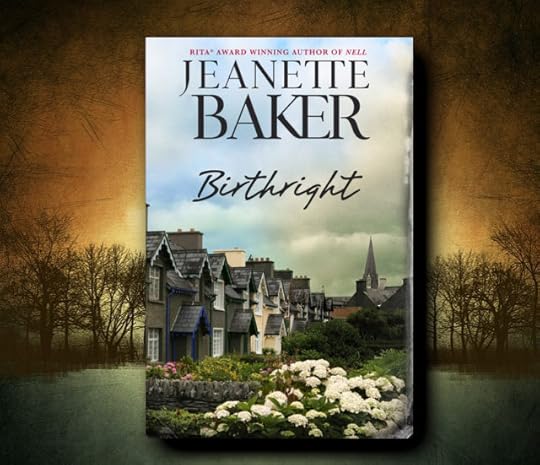 Fun Stuff
Fun Stuff Where do you write your stories? A tiny office? A loft? The kitchen table? In the bushes while you secretly people-watch like a total creeper? Or a warm café with mocha in hand and feet up on an ottoman?
Author: A small, open office
What book are you reading at the moment?
Author: “The Sunshine When She’s Gone.”
What is your favorite literary trope?
Author: A Diamond of the First Water
What have you learned about yourself from the writing and/or authorship process?
Author: Sometimes, I can do it well, other times, not as well.
What’s the best piece of advice you’ve ever been given?
Author: Wait and listen before speaking.

Author Website: www.jeanettebaker.com
Social Media : facebook.com/jeanette.baker.77
Book Sales Pages: https://www.topreadspublishing.com/books/birthright/
August 9, 2022
Author Interview: Arabella Sheraton, Regency Romance

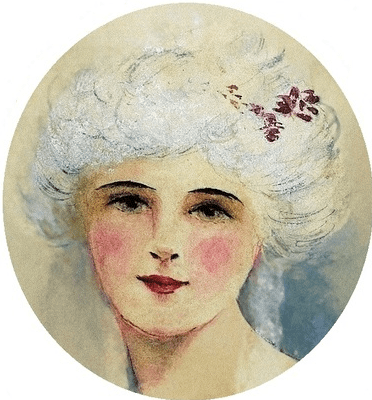
Arabella Sheraton is the author of the regency romance book The Reluctant Bridegroom.
From Planning to PublishedWhen did you start writing and why?
Author: A few years ago, my mom, who was an invalid, complained that the Regency romance books by a Big-Name Publisher were ‘all the same.’ She said, “I’m sure you could write a good Regency for me. Will you?” I thought to myself how hard could it be, and already being a Jane Austen and Georgette Heyer fan, I dived in.
Are you indie, traditional, hybrid, or vanity, and why?
Author: My first few books were written for a traditional publisher who, sadly, closed down when the owner became ill. I turned to indie publishing, found a good distributor, and have never looked back.
How did you determine your target audience?
Author: Regency is a niche market with very dedicated fans. That makes it easy for a Regency author to tap into the market.
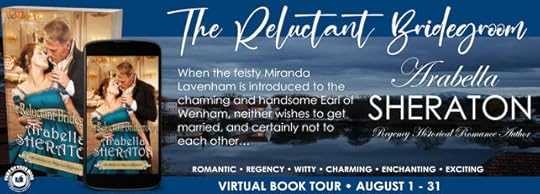 Marketing
Marketing How do you promote your content?
Author: I have a Facebook site, a website, and a Twitter profile. I post regularly to Facebook, but I am an avid Twitter user, and this has worked out the best for me. I tweet other people’s books/news and they return the favour.
What do you think is the most critical marketing component or tactic for becoming successful?
Author: Persistence. The ability to just keep going even when it seems as if you are wading through mud and everyone else is enjoying unparalleled success but not you.
 About Your Work
About Your WorkWhat type of content do you write and why? Fiction Novels? Poems? Songs? Screenplays? Short Stories? Epic?
Author: I write authentic Regency romances. This may seem an odd statement, but romance in this sub-genre of historical fiction has very clear guidelines. Regency sticks to certain rules, has die-hard fans that know their bonnets and boudoirs, and leans towards an authentic style for the genre.
Name some common elements in your writing: villains, magic, red-herring twists, the unfortunate ensign, mysterious phenomena, asyndeton, sentence fragments etc.
Author: Regency could be called formulaic but in fact is anything but. Given the ‘restrictions’ imposed by the genre (clean romance, era-appropriate language etc) and the fact that there are no special FX and whizz-bang action car chases, the writer has to work on plots that are intriguing and concern people of the era, their relationships and the drama that arises from conflicts within these relationships and social issues. I aim for witty dialogue, intriguing plots, realistic interactions, and the social mores and manners of the time. There is plenty of material for themes and dramatic plots.
What was your first goal when you started your journey to becoming an author? Has that changed?
Author: I did not think of becoming an author at all. I just wrote the books to entertain my mother. I happened upon a publisher who posted an advert in an online newsletter, asking for Regency manuscripts. They loved my books and asked if I had any more lined up. As it happened, I had. After my mom passed away, I have continued to write in her memory. She so loved Regency romance, like many readers out there.
What do you want your readers to get out of your works?
Author: I absolutely love sinking into a Regency romance and being gently taken back to an era when things were much simpler. A good romance can absorb you for a few relaxing hours. I want my readers to experience the same kind of pleasure. The feeling when you put down a book, sigh, and think, “Oh, that was just wonderful.”
What is your writing process, from idea to polished work? Pantster? Plotter? How long does that typically take you?
Author: Oddly enough, I always start with a catchy title. I have tried to do it other ways, but the title seems to strike the right note and from there the story unfolds very easily. I handwrite my chapter outlines, make a list of potential characters, and then start typing the story. So it’s a mix of pantsing and plotting, but there is definite plotting. I never struggle for stories. There are always a few ideas floating around in my head.
StrugglesAre you a driven & self-advocating author, a gun-shy promoter, or a total marketing procrastinator?
Author: I am driven and self-advocating. You have to tell people your books are out there, and you have to give them a taste of the books as well. The Amazon Look Inside is not enough. Wattpad is a great way to give potential readers/fans a peek into your books. I have put the first 3 chapters of all my books on Wattpad to give any reader a nice chunk of my stories. The feedback is also useful. Wattpad allows you to share this with other platforms like Facebook and Twitter. Here are the first 3 chapters of The Reluctant Bridegroom on Wattpad https://www.wattpad.com/story/5877656-the-reluctant-bridegroom-chapters-1-3 I also use two excellent marketing companies to keep promoting me when I am not able to post on Twitter. Circle of Books comes highly recommended and The Main Channel Network.
How do you combat writer’s block?
Author: I don’t believe there is such a thing. When I grind to a halt in my story, I put that part aside and continue writing a few scenes ahead. I leave it up to my characters to sort out the roadblock when I get back to the scene. It works. You cannot force creativity.
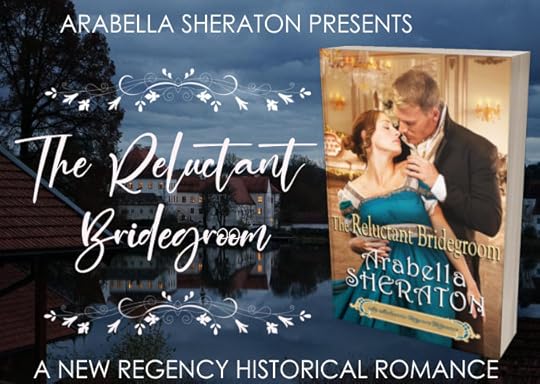 Fun Stuff
Fun Stuff Where do you write your stories? A tiny office? A loft? The kitchen table? In the bushes while you secretly people-watch like a total creeper? Or a warm café with mocha in hand and feet up on an ottoman?
Author: I live in a small island country in the Mediterranean. My home is in the countryside, in beautiful surroundings, and the only noise is the sound of birds singing… I have a study set up for my writing and here is where all the magic happens!
What book are you reading at the moment?
Author: April Lady by Georgette Heyer for the umpteenth time.
How do you try to “break the mold” and be unique?
Author: Every author is unique in their own way. Where things fall apart is when they read something another person has written or received accolades for and they then doubt themselves and copy the other writer. I write the way I write, and people enjoy my books. They may enjoy someone else’s more, but that’s their privilege.
Do you have a writing companion?
Author: Two dogs (Pumpkin and Stanley) and a cat (Bertie Wooster) and his girlfriend (Princess Jasmine) who comes to visit and eat my cat’s food.
What’s the best piece of advice you’ve ever been given?
Author: I have three, actually. These I gleaned from the wonderful marketing guru Penny Sansevieri. 1. Never give up. 2. Make sure your books reach the highest standards of publishing. 3. Every day, in some way, tell someone about your books because word of mouth is free and it’s the best form of advertising.

Author Website:
https://regencyromances.webs.com
Social Media:
https://www.facebook.com/regencyromances
Book Sales Pages: https://www.amazon.com/Arabella-Sheraton/e/B00J60N80Y/ref=dp_byline_cont_ebooks_1
Other: Wattpad
https://www.wattpad.com/story/5877656-the-reluctant-bridegroom-chapters-1-3
July 14, 2022
Author Interview: Amy Schisler, Romantic Suspense/ Inspirational

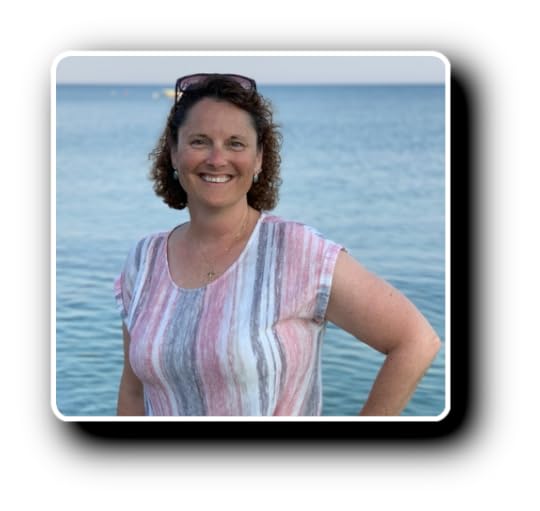
I’m Amy Schisler and I write inspirational fiction on the side of romantic suspense. My most recent release is Seeking Tranquility, Book One in my Chincoteague Sunsets Trilogy, a spinoff of my Chincoteague Island Trilogy.
From Planning to PublishedWhen did you start writing and why?
Author: I’ve been writing for as long as I can remember. As a young girl, I wrote poetry to express my thoughts and emotions, and I always said I’d like to write a book someday. After fifteen years as a librarian, I told my husband I was tired of shelving other people’s books and thought it was time to write my own! Here I am, seventeen books, twelve novels, later, and I still have so many ideas for more!
How long did it take you to finish your first book?
Author: It took about five years to write my first book. The writing part was easy. The editing and rewriting were tricky, and after a disastrous year with a small press publisher, the final rewrite was pretty painful.
If you’ve published, how long did your first book take?
Author: I received so many rejections for my first book, but I did eventually have it published through a small press in Texas. The experience was not what I expected, and I was completely disillusioned. A good attorney helped me get my rights back, and things have gone much smoother ever since.
Has your publishing timeframe improved at all since your first publication?
Author: Now, I can write an entire novel in about two weeks. It takes another month or so of editing and rewriting, and then I put it aside for several months before going back and polishing it off. At that point, it goes to my editor for the final edits.
Are you indie, traditional, hybrid, or vanity, and why?
Author: Today, I’m an indie writer. I did seek out other small press publishers for some of my later novels, but the ones I spoke with felt that I was successful on my own and didn’t need a publisher to do all that I was already doing. However, I am currently seeking a publisher for a Bible study I’ve written, so we’ll see what happens with that!
How did you determine your target audience?
Author: When I first began writing, my target audience was romantic suspense and mystery readers. The more I wrote, however, the more my books gravitated toward inspirational fiction. I didn’t really do it on purpose. My books still all contain elements of mystery and suspense, intrigue at the very least, but they all have a faith-inspired backstory that I never intentionally set out to write but happened gradually and continues to be a major theme in my books.
What is your publishing process?
Author: I’m not a planner when it comes to my books. I always know the beginning and ending, but I rarely know how I will get from one to the other. I don’t always write one scene after another linearly either. Often a scene will come to me, and I will write it down then and figure out where it fits in later. I write the first couple drafts over the course of a month or so. I use a few really good beta readers to help stay focused and streamline the plot. After I put it down for several months and then come back to it, I will polish it and send it to my editor. Once she puts her stamp of approval on the finished manuscript, it’s off the audiobook narrator. During that production process, I often find small things that we will work together to tweak. Hearing the book read aloud can make such a difference! Once the audio is complete, the cover and back matter are ready, and the discussion questions are written, it’s ready for publishing!
What platforms do you use to publish your works?
Author: I use all platforms to publish my books. They are available anywhere print, audio, and ebooks are found. I distribute through Ingram, Draft2Digital, and Findaway Voices.
How do you get critiques, betas, feedback, and edits?
Author: I use beta readers, proofreaders, and a great editor.
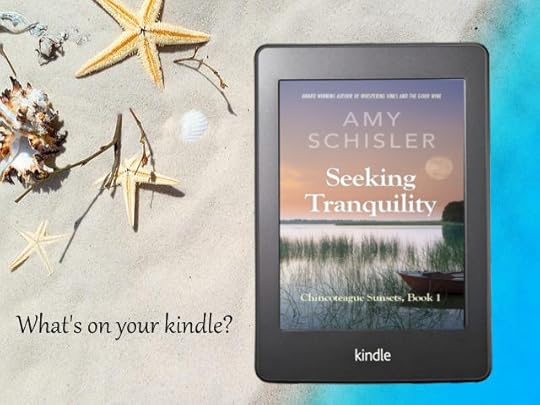 Marketing
MarketingDo you have a platform? What does it consist of?
Author: I do a lot on social media, especially Facebook and Instagram. My daughter is a professional media marketer, so she has been instrumental in helping me establish a brand, construct a website, and manage posts. I also write a weekly blog focused on everything from family life to favorite recipes to my latest work in progress.
What is your launch plan for your works?
Author: I typically launch one book in the summer and one in fall or winter. I love to do big book launches that fit the theme of the book and bring in a crowd. Once, I held a launch at a horse rescue farm to go with my Colorado suspense, Summer’s Squall. Last year, I held a Book and Wine Paring and Dinner to launch my book, The Good Wine. I advertise on social media and my website as well as newspapers and radio.
How do you get reviews for your books?
Author: Getting reviews is so hard! I often ask friends and family to post, but I also engage blog tours and send ARCs to readers on listservs I belong to.
How do you promote your content?
Author: I promote through regular media and social media. Recently, I was on an afternoon talk show, and I do lots of interviews and guest spots on podcasts.
What do you think is the most critical marketing component or tactic for becoming successful?
Author: I think it’s critical to reach out beyond my faithful readers. I’m always looking for ways to connect with more people and get the word out about my books. I attend a lot of festivals and non-book related events where I can spend time talking to people one-on-one about my works.
How do you define success as an author?
Author: Success is simply having someone say they loved something I wrote.
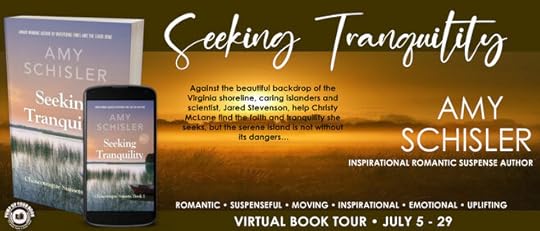 About Your Work
About Your WorkWhat type of content do you write and why? Fiction Novels? Poems? Songs? Screenplays? Short Stories? Epic?
Author: I primarily write novels because I love to read and I love to write stories. However, I write just about anything that comes to mind!
What genres and subgenres do you write in?
Author: My main genre is Inspirational Fiction, but within that, my books are filled with suspense, mystery, intrigue, and almost always, romance.
What is your author brand (genre, mood, image, theme, message, etc)? How did you decide on it?
Author: My brand is writing something that inspires. My message is that there is a Higher Power out there Who sends family and friends into our lives to help us discover who we are and what our purpose in life is. This isn’t just a main theme in my fiction. I’m often asked to give talks or lead retreats on discovering one’s purpose and making it the focus in life. All my books really contain the same theme—love—but not in the way you expect. My books are about much more than romantic love. They’re about love for family, friends, community, and faith.
How many works have you published?
Author: I’ve published twelve novels, two children’s books, two devotionals, and a book for parents and children on saints.
Can you tell us a bit about your most recent publication?
Author: After the end of my first Chincoteague Island trilogy, readers continued to ask for more Chincoteague books. Knowing I still had some characters lingering in the background, I decided to create a new trilogy. Being familiar with both the island and nearby Wallops Island Flight Center, I thought it would be fun to add some NASA characters and make their space explorations efforts part of the storyline.
Setting Christy’s own struggles against the backdrop of an island struggling to regain its place in a world gone mad felt like the perfect fit. After two years of living with fear and uncertainty, when few visitors ventured across the causeway and businesses shut down, everyone on the island is ready to live again. Two years after losing her parents then being forced to sell their home, Christy and her younger sister move to the place where their family found rest and refuge. She feels as if she will never live again, but the island that brought miracles, promise, and hope to many, proves once again the place to go for those Seeking Tranquility.
Name some common elements in your writing: villains, magic, red-herring twists, the unfortunate ensign, mysterious phenomena, asyndeton, sentence fragments etc.
Author: My writing always contains a hero and/or heroine to root for and, of course, a villain. Typically, the villain is a person, but sometimes it’s a disease, a traumatic past event, or other incident that is getting in the way of the main characters finding peace. All my novels, not just the mysteries and suspense novels, have red-herrings and twists that make the reader say, “Oh! I didn’t expect that!”
What was your first goal when you started your journey to becoming an author? Has that changed?
Author: My goal at first was to become a best-selling author, but my goal now is simply to inspire readers to go where they’ve never been physically, mentally, and spiritually.
Do you have other supporting services like a podcast, blog, webinars, courses, video channel?
Author: I have a weekly blog and a growing YouTube channel. I also do lots of public appearances, talks, workshops, and retreats.
What do you want your readers to get out of your works?
Author: I want them to realize that there are all kinds of love just waiting to be found.
What part of the author process are you working on or studying most now?
Author: I’m trying to get more public appearances and talks. I love talking to a room of people about my writing and my journey, and I love connecting with readers in person.
What has been your favorite part of the writing and querying or publishing process?
Author: I love discovering new people and places through my writing and research.
Which authors write similar books to yours? How did you find them?
Author: I’m often told that my writing reminds people of Mary Higgins Clark, which I consider the highest complement of all time. I’ve also been compared to Debbie Macomber and Sheryl Woods, whom I love! I read anything and everything I can get my hands on, so I’m constantly discovering new authors, and they all influence me in some way.
Have you always read in the genre you wanted to write in? Do you think that’s made it easier or harder to create new stories?
Author: I read just about all genres, but I do like to read genres similar to mine to see how authors handle the same types of conflicts, traumas, or character growth. I’m not sure it changes the way I write, but it does give me different perspectives.
What is your writing process, from idea to polished work? Pantster? Plotter? How long does that typically take you?
Author: I’m not a planner when it comes to my books. I always know the beginning and ending, but I rarely know how I will get from one to the other. I don’t always write one scene after another linearly either. Often a scene will come to me, and I will write ii down then and figure out where it fits in later. I write the first couple drafts over the course of a month or so. It typically takes me a couple weeks to write the first draft and a few months to finalize the manuscript.
Where do you network most with other writers, authors, and creative types? LinkedIn? Wattpad? Twitter? Facebook? Somewhere else?
Author: I network with other writers mostly through Facebook groups but also through local and national author associations.
Do you sprint-write like a starving cheetah, or are you a totally chill turtle writer? Somewhere in between?
Author: I’m definitely a sprinter!
 Struggles
StrugglesWhat has been the hardest thing to overcome on your journey to authorship?
Author: Time! For many years, I wrote between field hockey games and tennis matches and PTA meetings. Now that my three girls are grown and my writing has expanded, I find that I’m in more demand as a speaker and pilgrimage leader, so it can be difficult to carve daily time to write. However, I do try to write or work on some aspect of my work in progress every day.
How has the writing and querying or publishing process affected you emotionally? Do you have any tips for budding writers?
Author: Write, write, write. Write every day even it’s just a list of ideas or a sketch of a scene. It’s not always easy, but it’s necessary.
Do you have any tips or recommendations for those who want to go the final step and become authors?
Author: Just do it. I tell people all the time, if there’s a book inside trying to get out, all you have to do is take the time to make it happen.
If you could do it all over again, what would you change?
Author: I don’t think I’d change anything. God’s timing is perfect, and everything in my life and career seems to be coming together just as it was supposed to. I’ve learned so much from my mistakes; I’d never want to miss those growth opportunities that have led me to where I am today.
Are you a driven & self-advocating author, a gun-shy promoter, or a total marketing procrastinator?
Author: Maybe all three? I’m not a natural at self-advocating, but I’m getting better all the time. I have a wonderful author friend who has helped me learn to put myself out there. It’s not easy, but every event, interview, etc. does help me get better at it.
How do you keep yourself motivated?
Author: I love what I do, so that makes it easy to stay motivated. The more I write, the more I want to write, and the more stories and characters come into my mind and heart.
How do you combat writer’s block?
Author: I’ve honestly never had writer’s block. Once a story is forming, it just comes without stopping. My husband is wonderful and knows when to just call in a pizza for dinner and bring a slice of pie and a glass of wine to my office!
How did your family and friends react to your writing? Was it what you expected from them?
Author: My friends and family have not been merely supportive but active promotors and advocates of and for my work. Sometimes I think my father sells more of my books than I do! My friends are constantly tagging me on book pages and telling others about me.
What assumptions about writers and authors do you think are myths?
Author: I often hear that authors are loners or don’t deal well with people or crowds. I haven’t found this to be the case with myself or many of my author friends.
Fun StuffWhat do you listen to while you write?
Author: Nothing. I like absolute silence to think and to hear the characters speaking to me.
Where do you write your stories? A tiny office? A loft? The kitchen table? In the bushes while you secretly people-watch like a total creeper? Or a warm café with mocha in hand and feet up on an ottoman?
Author: I have an office that used to be my oldest daughter’s bedroom. When she moved out to go to law school, she and I had a wonderful, bittersweet time cleaning out and redoing the room. We painted it light yellow, and it just feels happy and sunny even on a gloomy, rainy day.
What book are you reading at the moment?
Author: I just finished James Patterson’s 22 Seconds, the latest in his Women’s Murder Club series. I love a good series, be it crime, romance, or small town.
What is your favorite literary trope?
Author: Probably time travel. From epics like Outlander to anything by Susanna Kearsley, I love a good time travel book.
What’s the best piece of advice you’ve ever been given?
Author: I once attended a writer’s conference in Milwaukee with my dear friend, Alexandra Hamlet. One evening, as Alexandra and I were hanging out in our hotel room talking girl talk, swapping family stories, and comparing writing notes, Alexandra said something to me that was so profound, it completely changed the way I look at my writing. I was telling her that I was a having a hard time with some in the “romance” community because my books don’t always fit the bill, so to speak.
My dear and wise friend said, “Amy, you do not write romance novels. You write love stories.”
Alexandra and I talked about this at length that evening and continued to come back to it all weekend. She is absolutely correct. All my novels have a romance or two, but it’s rarely the main thrust of the story. More often, there’s an abundance of love going around that doesn’t even involve the love between two people. My books are often about love between man and woman, but they are actually more about the love of family, love of community, love of Country, love of God, and more. All my books share the common theme of discovering love of oneself.
I wish there was a genre that was simply for readers looking for books about love, not romance, just LOVE!

Author Website: https://amyschislerauthor.com
Twitter: https://twitter.com/AmySchislerAuth
Facebook: https://www.facebook.com/AmySchislerAuthor
Goodreads: https://www.goodreads.com/author/show/8436890.Amy_Schisler
Instagram: https://www.instagram.com/amyschislerauthor/
Book Sales Pages: https://amyschislerauthor.com/shop/
Other: Blog: https://amyschislerauthor.com/category/amys-blog/
July 8, 2022
Author Interview: Palmer Pickering, Sci-Fi/ Dystopian

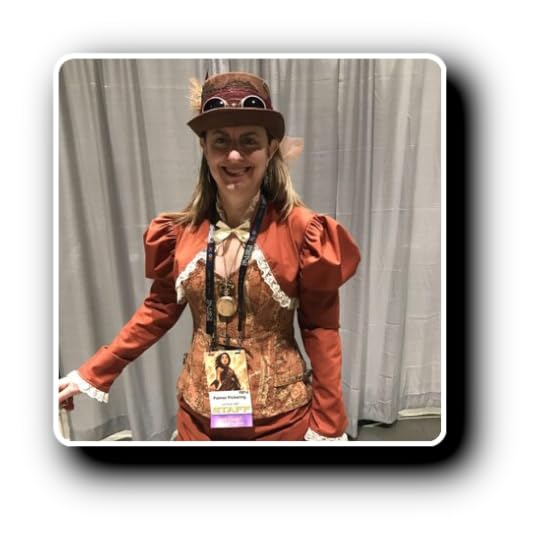
Hi, I’m Palmer Pickering! I write science fiction and just released “Light Fighters,” the sequel to “Moon Deeds” of the “Star Children Saga.”
From Planning to PublishedHow long did it take you to finish your first book?
Author: I have been working on the Star Children Saga for over ten years. I rewrote Book One, “Moon Deeds,” several times over the years.
Are you indie, traditional, hybrid, or vanity, and why?
Author: I am self-published and have my own Indie Publishing imprint, Mythology Press.
What is your publishing process?
Author: I work with several editors, from developmental editing, to copy editors, to multiple proofreaders. I found that with books of this length and complexity, it’s best to do multiple editing passes. Then I hire a desktop publisher to do the book layout. I hire artists for the cover art and other art, such as maps. I really like working with so many interesting professionals. That’s part of what makes self-publishing so much fun.
What platforms do you use to publish your works?
Author: I use print-on-demand for printing, with both IngramSpark and Amazon. That way I can offer my books to any bookstore or library, or small book seller. For ebooks I use the same two services, and they distribute to all book reader companies. I have an audiobook for “Moon Deeds,” and I use Findaway Voices, who handles a wide distribution to many different audiobook outlets.
How do you get critiques, betas, feedback, and edits?
Author: During early drafts, I participated in writer critique groups, where we exchanged chapters and offered each other feedback. That was a great learning process, and I made some good friends doing that. At a certain point, that process became too slow for me, so I started getting beta readers to read the finished book and provide feedback. I would meet with them afterwards and ask them all sorts of questions about the plot, characters, and their understanding of the world. That provided invaluable feedback as I learned what came across well to readers and what did not work so well. As I mentioned, I also hire professional editors for all stages.
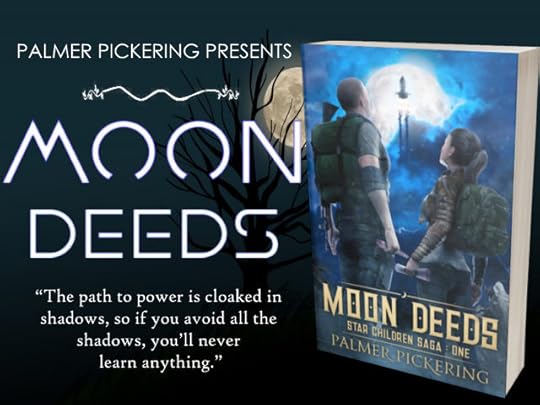 About Your Work
About Your WorkName some common elements in your writing: villains, magic, red-herring twists, the unfortunate ensign, mysterious phenomena, asyndeton, sentence fragments etc.
Author: My writing style is very descriptive. I am going for total immersion, so that readers feel as if they are really there and feel what the characters are feeling. I pit dark characters against good characters, striving to explore the motivations for human behavior and how societies function. However, I always try to make my characters authentic and multi-faceted. I like to explore how people strive for a higher purpose and seek the divine to overcome darkness. This translates into magic in my stories, as the protagonists encounter insurmountable obstacles.
What has been your favorite part of the writing and querying or publishing process?
Author: My favorite thing is writing. My least favorite thing is querying. I like the publishing process, but it take time away from writing, which is my first love.
Where do you network most with other writers, authors, and creative types? LinkedIn? Wattpad? Twitter? Facebook? Somewhere else?
Author: I network on Twitter, Facebook, YouTube, and I join Facebook groups. Also Goodreads. And at conventions. I have met some of my best connections at writing and genre conventions.
Do you sprint-write like a starving cheetah, or are you a totally chill turtle writer? Somewhere in between?
Author: I write or edit a little bit every day, anywhere from 15 minutes to two hours per day, sometimes in small chunks. On weekends I like to do long writing sessions, interspersed with time to think about what I’m writing. I need uninterrupted quiet time and space to just dwell in my mind about the story I am writing: envisioning a scene; working through a plot knot; pondering the best wording or plot device; or outlining and planning the plot structure, world, and character arcs. I guess I would call myself a lion, who likes long days in the sun lazing about but also is a fierce hunter.
 Struggles
StrugglesWhat has been the hardest thing to overcome on your journey to authorship?
Author: The hardest thing was trying to find an agent or publisher. I failed at both.
How has the writing and querying or publishing process affected you emotionally? Do you have any tips for budding writers?
Author: I pretty much got impatient with the whole vetting process of agents and publishers. Perhaps I am somewhat bitter or jaded, but it all seems very random and subjective. The numbers just don’t make for good odds at getting a book deal. There are way more talented writers than there are agents and available slots for new authors at traditional publishers. If you didn’t come up through a respected MFA program or have some other connections, or you don’t win the publishing lottery, chances are slim at finding a deal. Not impossible, just slim. Some friends of mine were successful. So I’m not saying don’t try, just don’t take it personally if you are not successful at landing an agent and a book contract. I am very happy self-publishing. It’s a totally viable path at this point in time, particularly for genre writers like fantasy, romance, or mystery. 50% of the sales in those genres are self-published authors these days. They are definitely giving the publishing houses a run for their money.
Do you have any tips or recommendations for those who want to go the final step and become authors?
Author: If you want to write, then write. That’s the only way to get good at it. That means sit down and put pen to paper, or pound on that keyboard. Don’t worry about the quality, just start practicing and exercising the writing muscles. Try to write several times a week, like you would do to become good at any skill. Some people say they want to write, but they never actually write anything. Thinking and wishing for a thing does not make it so. Fate rewards those who take action. Writing courses/programs or workshops are always a good idea. Join a writer’s group or trade drafts online to get feedback and to read other people’s work. You learn just as much by reading the poorly executed story as you do the great ones. Regarding becoming a published author, go to cons and listen to panels, read trade magazines, and jump in. The water’s fine.
 Fun Stuff
Fun StuffWhat book are you reading at the moment?
Author: “Kings of the Wyld” by Nicholas Eames, and “Burn Red Skies” by Kerstin Espinosa Rosero.
What is your favorite literary trope?
Author: How about my least favorite? Meta-fiction. Just doesn’t do it for me.
How do you try to “break the mold” and be unique?
Author: I write what is entertaining to me. I am not trying to be unique, I am trying to write a compelling story and improve my craft. I think my imagination is creative enough that my worlds and stories stand on their own.
Do you have a writing companion?
Author: I have three cats who take turns inserting themselves between me and my computer.
What’s the best piece of advice you’ve ever been given?
Author: Your best advertisement is your next book.

Author Website: https://mythologypress.com/
Social Media: https://twitter.com/PalmerPickerin1
Book Sales Pages: Star Children Series
June 27, 2022
UNICEF Ukraine Donation: July 4th
As we enjoy our day of independence in the USA, I think it’s only right to remember that others still fight for theirs.
All royalties accrued on July 4th will be donated to UNICEF-Ukraine. I will estimate pages read, so those with Kindle Unlimited subscriptions who read my titles will be included in the donation as well.
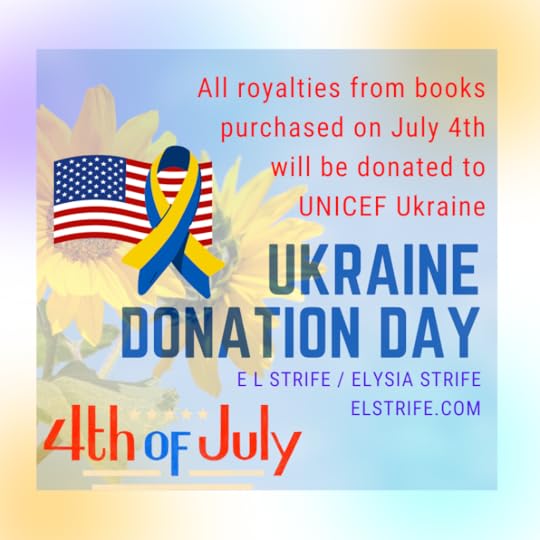
Children all too often suffer the consequences of the adult world. They shouldn’t have to. Many are displaced from their homes and struggling to cope mentally, emotionally, and physically.
My husband and I had looked into adopting a child at the start of the war, but adoptions were quickly shut down. I still want to help.
Join me in donating simply by purchasing a title on July 4th or reading one you already own but haven’t started. Enjoy your 4th of July and know you’re donating to a good cause.
1656918060days
hours minutes seconds
until
July 4th Donation Day
E L Strife Sci-Fi on AmazonElysia Strife Sweet Romance on AmazonWant to make a donation directly instead?https://www.unicefusa.org/mission/emergencies/child-refugees-and-migrants/war-ukraineJune 23, 2022
Author Interview: Susan Berry, Romance

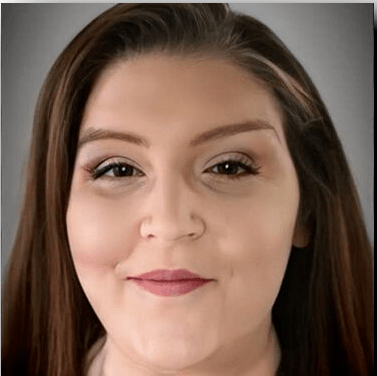
“Susan Berry spent her free time with her beloved grandmother, reading the latest novels they’d retrieved from a used book store, or the local second hand shop. That reading eventually turned into the writing of her own romance novels. Novels filled with characters who have not yet found love, but eventually find a way to overcome romantic troubles with humor, wit, and the consumption of lots and lots of chocolate.”
How long did it take you to finish your first book?
Author: My first book, Dance of the Heart, took me two years to write. I’m a single mother of two, and I wrote mostly while my children were asleep at night. And I probably could have finished it sooner, but I was having too much fun getting to know my heroine, Maggie. She is so funny, accident prone just like me, and someone I’d love to be friends with. She’s faced a heartbreaking tragedy in her life, but found a way to overcome every obstacle that stood in her way and eventually found true love.
How do you define success as an author?
Author: To me, success as an author isn’t so much about monetary gains as it is about enjoyment. The enjoyment of putting on paper the characters that live in my mind, and having someone leave positive reviews, or reach out to me because they felt a connection with that character. Being an author really is so much more than writing books. It’s a shared experience between the writer and reader, that leaves each bonded to the other, and something I thoroughly enjoy.
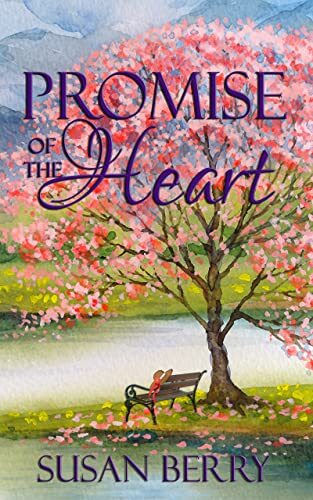
After a distasteful first meeting, and a rocky start to their romance, Maggie Kinsley has been happily married to Desmond for the last eleven months. And although she was often alone when he traveled for business, she rather enjoyed how he passionately greeted her when returning home.
So when he received a letter naming him as executor of a property that belonged to a deceased family friend and had to leave for a few weeks, Maggie should have been content as she kissed him goodbye. But there was something about the whole thing that made her uneasy. Why was Desmond so evasive with her when she asked him about the previous owner.
Have you always read in the genre you wanted to write in? Do you think that’s made it easier or harder to create new stories?
Author: Yes, I have always read in the genre I write in. Harlequin romances are some of my favorites. The first one I ever read was given to me by my grandmother when I was ten-years-old. Since I enjoyed it so much, she would take me every weekend to cruise the second hand shops or discount book stores in our town to search for more. My Grandmother passed away before I wrote my first novel. But I believe she would have enjoyed reading my stories, and I think of her every time one is published. Love you, Gram!
What has been the hardest thing to overcome on your journey to authorship?
Author: One of the hardest things to overcome on my journey to authorship was self-doubt. Like most women, I’ve faced hardships in my life, which included an accident that left me a paraplegic. But nothing compared to the insecurity I felt when my first book was published. I held my breath as I freed my character from the confines of my computer. And I can still remember the first time a reader said how much they enjoyed my book, and couldn’t wait to read the next one. My smile could have lit up the room. And I still feel that way each and every time a reader reaches out to me. I’m so very thankful, and humbled, by their support and encouragement.
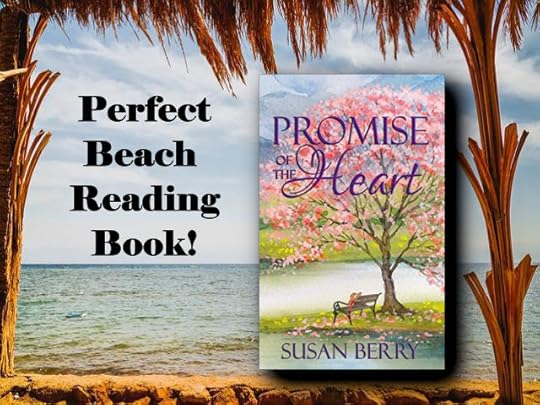
How do you combat writer’s block?
Author: Writer’s block is something that every author faces and not easily combated. For me, I usually start by taking a break and eating a few pieces of chocolate. Ok…a lot of chocolate. And truth be told, I’m a firm believer that chocolate could solve any problem and may even be the answer to world peace! After the chocolate is depleted, and I still can’t focus my imagination, I’ll open a new word doc and write anything my mind conjures up—clean out the clutter so I can get back to my characters. That usually does the trick. And what do I do to mark my success at defeating writer’s block? You guessed it…more chocolate, of course.
Do you have any tips or recommendations for those who want to go the final step and become authors?
Author: My tip for those who want to take the final steps and become an author is…go for it! You are unique and so will be the stories you’ll write. Write every chance you get about anything that inspires you. And don’t let anyone tell you that you’re not good enough. Reach out to other authors for advice and ask lots of questions. Join author groups on social media platforms like Facebook. Eventually your confidence will catch up with your talent and your first book will be published.
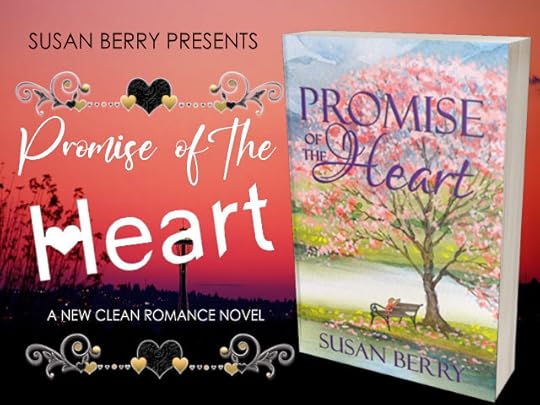
What do you listen to while you write?
Author: I love to write in the spring and summer time with my window open and listen to the sound of the wind blowing through the trees, or the rain falling on my walkway. In the fall and winter, when my window is closed, I enjoy the colorful leaves or the snow fall. For me, having music playing is too much of a distraction as I find my self signing more than writing!

Susan’s latest book is the clean romance suspense, Promise of the Heart.
You can visit her website at https://www.SusanBerryauthor.com or connect with her on Twitter, Facebook and Goodreads.
June 22, 2022
Author Interview: E J Fisch, Science Fiction


Hi! I’m EJ Fisch—author, artist, gamer, and overall nerd. First and foremost, I write science fiction, but all of my sci-fi has a thriller twist. After all, they say you should write what you like to read, and those are my two favorite genres.
I most recently published Embers (Feb. 22, 2022), the fifth installment in my character-driven space opera/spy thriller series. It felt SO good to finally get to share five books’ worth of character development with readers and bring the series to a satisfying close…for now, at least.
From Planning to PublishedWhen did you start writing and why?
Author: I’ve enjoyed telling stories for just about as long as I can remember, and I dabbled in writing as long ago as elementary school. I started writing more seriously in junior high; a couple of friends and I had a goofy Star Wars roleplaying game going via AOL instant messenger, and I’d take the transcripts from our chats and type them up as actual prose. Star Wars had already sparked my love of sci-fi many years earlier, so it was at that point that I started wanting to develop deeper, more complex stories in this genre where there were virtually limitless possibilities and my imagination could run wild. Ever since then, I constantly have new characters and ideas brewing in the back of my mind, so writing (and subsequently publishing and sharing those ideas with others) is a perfect outlet.
If you’ve published, how long did your first book take?
Author: I want to say my first book took me about 10 months to write. Back then, I was writing totally for my own enjoyment and had no plans to ever publish, so I didn’t keep track of time very well. I actually wrote the majority of it during my senior year of high school and into early college. Then it sat and gathered dust until the spring of 2014, at which point I’d already completed the second book in the series and was well into plotting the third. It finally struck me that I’d put all of this work into these stories only to hide them from the world. That was when I decided to pursue publishing; I took a few months to go back and revise and spruce up the first book (it needed some MAJOR work), and then dove in.
Are you indie, traditional, hybrid, or vanity, and why?
Author: I am 100% indie. Self-published, to be exact, and not afraid to admit it. I saw a post on Twitter the other day asking self-pubbed authors whether they went that route solely so they could just get their work out there. Not gonna lie—that’s definitely part of it, but it’s only the tip of the iceberg. I chose to self-publish so I could maintain complete control of my work. Not only am I guaranteed to be able to share my stories with other people (even if readership is low), but I can stick to my own schedule. I can design my covers how I want. I can format both my ebooks and physical copies how I want. I can market how I want. I can tell the story I want to tell, and I can keep producing regardless of how a given book performs. Yeah, it takes a lot of extra work, but I can’t imagine leaving those things in someone else’s hands. I’m a strong advocate for eliminating the stigma surrounding self-publishing. There are a ton of incredibly talented writers out there who have chosen to go this route for many of the same reasons I have.
What platforms do you use to publish your works?
Author: I started out publishing exclusively on Amazon and made use of their Kindle Unlimited program. Then about 3 years ago, I made the switch to wide distribution. Now, my work is available at all the major retailers—Amazon, Barnes & Noble, Kobo, Apple, Google Play—as well as a number of smaller international retailers. KU/Amazon-exclusivity is so great in some ways and so limiting in others; I’m glad I made the switch.

Lieutenant Aroska Tarbic is an agent with the revered Haphezian Special Police. He’s lost a lot in a short period of time; the other members of his squad were killed in a tragic accident, and his younger brother was wrongfully convicted and executed for a crime he didn’t commit. Just when Aroska thinks he’s starting to piece his life back together, he’s assigned to a joint task force with a special operations team. It seems like a unique opportunity, at least until he learns his new commander is none other than Ziva Payvan, HSP’s finest operative…and the assassin who killed his brother.
MarketingHow do you define success as an author?
Author: Personally, every single sale is a small win for me. I started this little venture just wanting to share my work with others, so each sale represents a new person to share it with. It’s an even bigger win if those people enjoy the story and leave a nice review, or even better, when they reach out via email. No joke, I’ve had a few people send me a simple, quick email over the years just letting me know they enjoyed one of my books, and without fail, it makes me cry (never underestimate how much it means to an author to hear directly from a reader!). This happened most recently after I published Embers, which was already a very emotional project for me, so the simple message meant even more. I think I’d rather have 50 close-knit, enthusiastic, engaged readers who love my characters and stories than 50,000 random strangers who read the books, aren’t impacted in any way, and just move on with their lives. Of course not every writer is going to define success the same way, but that’s my definition.
And then I know I’ve really made it when people create artwork of my characters unprompted, or when people tell me my MC has showed up in their dreams (welcome to my life), or when people leave 5-star reviews saying they were traumatized by one of my book endings and will need to seek professional help 
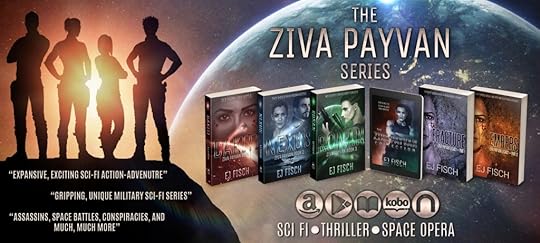 About Your Work
About Your WorkWhat genres and subgenres do you write in?
Author: I write sci-fi with a lighter, more space opera/space fantasy feel. Not only is that what I’m more comfortable writing, but it has ended up making my books more accessible to people who don’t always read sci-fi—you don’t have to be a hardcore science fiction nerd to understand and enjoy them. I also like to incorporate thriller elements into my sci-fi settings. The main characters in my series are members of a superhuman race who form a special operations team for the primary law enforcement agency on their homeworld, so it ends up being kind of a cross between spy thriller and military thriller. You’ve got your space travel, futuristic weapons, and advanced technology, but also assassins, espionage, conspiracies, and so much more. It has been a really fun combination of genres to work with. One of the future stories I have planned takes place in the same universe as my main series but will have a little bit more of a post-apocalyptic flair.
What is your author brand (genre, mood, image, theme, message, etc)? How did you decide on it?
Author: When I first started out, I almost exclusively let my books define my brand, which I eventually learned was a mistake because series grow and change over time. It wasn’t long before my banners, logos, business cards, etc. were outdated, and I also didn’t want to be limited to just one story/series. A couple of years ago, I began using a new, more generic logo that consists of simple shapes and colors but still has a very “spacey” look. Space-related backgrounds set the atmosphere without detracting from whatever is in the foreground. I use a lot of reds in my designs, partially because red is my favorite color, and partially because it’s very befitting of my series namesake character. When paired with my logo, my tagline—“Imagination At Work”—elicits the idea of an expansive, exciting universe, but that phrase itself doesn’t limit me to any particular sub-genre. I use the same font for all my logos, book titles, chapter headings, etc.—it’s strong and crisp and has an adequate futuristic look while still being clear and readable. The idea was to create consistency across my whole platform—everything from the books themselves to my website and social media—while avoiding constraints that would warrant another re-brand a couple of years down the road.
How many works have you published?
Author: I’ve published 5 primary works. My Ziva Payvan series consists of a main trilogy (Dakiti, Nexus, and Ronan) as well as a duology (Fracture and Embers). While technically books #4 and #5 of the overall series, Fracture and Embers are kind of a collective sequel to the trilogy and can serve as a jumping-in point for new readers. The journey the characters go on throughout the series was so much fun to engineer. All 5 books are available in ebook and paperback formats, and excerpts from each are available to read on my website.
I’ve also published an ebook-exclusive omnibus that includes the first 3 books as well as some character interviews and sneak peeks. Dakiti is also featured in Forged from the Stars, a collection that also includes first-in-series sci-fi novels by authors G.S. Jennsen and Tammy Salyer.
Can you tell us a bit about your most recent publication?
Author: Embers was released this past February and is the final book in the current story arc (the plan is for all my future work to take place in this same galaxy, but everything will either be brand new material with the same characters, or a completely different spin-off). It’s very much a culmination of everything that has happened since the start of the series and has a huge emotional payout for the characters (and readers too, I hope!). Ziva, my main (anti)heroine, goes on such a journey over the course of the story, and it felt so good to bring that journey to a realistic and satisfying conclusion. In the book, she and my other characters find themselves caught up in what is essentially an interstellar gang war, all while hashing out the issues that have plagued them for the last couple of books and dealing with their own personal demons
Name some common elements in your writing: villains, magic, red-herring twists, the unfortunate ensign, mysterious phenomena, asyndeton, sentence fragments etc.
Author: I of course try to make each of my books unique in their own way, so the characters aren’t always facing the exact same problems, the antagonists don’t always have the same motivations, etc. But in general, my work always includes very strong—and often somewhat complicated—character relationships, regardless of the nature of those relationships. Trust is a major recurring theme throughout the series.
In terms of the writing itself, I’m not ashamed to admit I use a lot of sentence fragments for stylistic purposes—emphasis, dramatic effect, replicating the way people talk, etc. As you may have noticed throughout this interview, I’m also a huge fan of em dashes 
What was your first goal when you started your journey to becoming an author? Has that changed?
Author: When I first started, my one and only goal was to simply share my work with others and quit keeping it hidden. On the whole, that’s still my primary goal; if a few people out there enjoy my stories and fall in love with the characters, that’s a win for me. I think every author—especially us indies—wishes they could make more sales and reach more readers, and I’m no different in that regard. But if I ever find myself getting frustrated with lack of sales and lack of reach, I just remind myself why I started doing this in the first place. A few extra bucks in my pocket is nice, but that wasn’t the initial goal. And like I mentioned earlier, I can keep writing and creating regardless of how many sales I have.
Have you always read in the genre you wanted to write in? Do you think that’s made it easier or harder to create new stories?
Author: Sci-fi and thrillers are the two genres I’ve primarily read over the years, and in many cases (especially on the sci-fi side) that has been really helpful for me when it comes to creating my own stories. I tend to not enjoy reading really heavy, hard science fiction as much, but I also don’t care for it if it’s overly simplified. That has helped me kind of find a balance between the science and the fiction in my own work—I can write the level of sci-fi that I’m comfortable with and that I enjoy reading. Plus, since sci-fi is such an age-old genre, I have a lot of material to draw from in terms of what classic tropes I might want to include, or which clichéd ones I might want to avoid.
On the thriller side, reading that genre has helped more with overall story structure—the way problems are introduced, how a conspiracy unravels, etc. It’s a good way to study pacing.
What is your writing process, from idea to polished work? Pantster? Plotter? How long does that typically take you?
Author: I am 100% a plotter. I’ve given pantsing my best shot and failed miserably. Whenever I have new ideas brewing, I always start by just jotting down some rudimentary bullet points. Just recently, I experimented a little with writing things out in a more prose-like manner (“So there’s this planet…”) as if I were explaining the ideas to myself. I ask myself questions and branch off if I’m not sure which direction I want the story to go. Eventually I’ll end up with basic bullet points for the entire story, at which point I’ll start breaking them up roughly by chapter get a little more in-depth with my outline. I often continue building on the outline even after I’ve begun drafting, especially if I have notes for continuity-related details I don’t want to forget.
This will sound terrible, but I actually have no idea how long all of this takes. The outlining for my early books took place back when I wasn’t keeping track of time at all (I can’t remember if I even used an outline for the first book), and my last 2 books have been written in the midst of my day job, so everything moves at a snail’s pace. It never fails that the outline comes together fairly quickly, especially if I can gain some momentum, and then it takes me forever to actually write the story.
Where do you network most with other writers, authors, and creative types? LinkedIn? Wattpad? Twitter? Facebook? Somewhere else?
Author: I’m definitely most active on Twitter. I do a little networking on Instagram, and a little less on Facebook, but Twitter is where the majority of the meaningful interaction takes place.
 Get the Books on Amazon
Struggles
Get the Books on Amazon
StrugglesDo you have any tips or recommendations for those who want to go the final step and become authors?
Author: I can’t speak for the querying/trad-pub process, but if you’re opting to go indie, and especially if you’re wanting to self-publish, my biggest piece of advice is to take your time. Do your research. Build your platform. Make sure your work is the absolute best it can be. If you want/need to hire an editor and/or cover designer and/or formatter, ask around in the community to find people who are a good fit for you. If you’re going to be doing your cover and formatting yourself, study other well-performing books in your genre and see what makes them shine (fonts, color schemes, etc.). If you make friends and build hype in the writing community well before your book is out, chances are you’ll have pretty good readership right off the bat when you launch. Some of those new friends may even serve as beta readers who can offer feedback and help you polish your story.
I say all of this as someone who got way too excited upon finally deciding to publish and rushed things. Frankly, my first book was not the best it could be when I published it (luckily it’s easy to correct typos and upload a fresh document to Amazon). I had no platform whatsoever other than the few people I knew in real life who’d found out I was about to publish. In the intervening years, I’ve redone all my covers and formatting, and I can’t help but wonder how much better all of my books would’ve performed if I’d done those things from the start.
So in short, I know it’s exciting, and it’s easy to get caught up in the fun and the hype. But step back, take a breath, and have patience—take the time necessary to create the most professional product you can, and you’ll be so much better off. Start strong.
Are you a driven & self-advocating author, a gun-shy promoter, or a total marketing procrastinator?
Author: I’m definitely somewhere between “gun-shy promoter” and “total marketing procrastinator.” I LOVE creating spiffy promotional graphics for my work and sharing them, but I hate feeling like I’m being obnoxious. If I’m running a sale, I tend to post a fun graphic with all the relevant info and links, pin it to the top of my social media, and then sit back and simply hope people see it. I’ve always hated saying, “Hey, buy my books!” (no matter how nice I try to make it sound LOL) even if that’s exactly what I want to happen.
Fun StuffWhat do you listen to while you write?
Author: I usually don’t listen to anything while I write—I don’t mind some ambient noise, but any type of music tends to be too distracting. Music usually comes later during the revision/proofreading process. I love instrumental music like movie scores, Two Steps From Hell, and Audiomachine, but at this point I’ve listened to all of that stuff so often that my brain forms associations with too much of the music and it’s just as distracting as lyrics would be. I do really like Ambience Lab on YouTube—there are a bunch of genre-specific ambience videos so it’s really fun to find some sci-fi related ones and get totally immersed in my work.
What have you learned about yourself from the writing and/or authorship process?
Author: I’ve known for a long time that I’m the World’s Biggest Introvert , and I was just musing the other day about how that means I want recognition for my work and accomplishments but still hate being in the spotlight at all. I imagine I’m not alone in this—it seems like the vast majority of writers tend to have introverted personalities. This whole publishing adventure has forced me to maintain a certain level of self-awareness; in order to see any success, I’ve had to step out of my comfort zone to varying degrees over the years. It can be challenging, and sometimes it’s not very fun, but I think it’s been good for me nonetheless.
, and I was just musing the other day about how that means I want recognition for my work and accomplishments but still hate being in the spotlight at all. I imagine I’m not alone in this—it seems like the vast majority of writers tend to have introverted personalities. This whole publishing adventure has forced me to maintain a certain level of self-awareness; in order to see any success, I’ve had to step out of my comfort zone to varying degrees over the years. It can be challenging, and sometimes it’s not very fun, but I think it’s been good for me nonetheless.
What is your favorite writing snack and drink?
Author: I tend to like hard candy that I can suck on absentmindedly while mulling things over—Jolly Ranchers or Gobstoppers are a solid choice on that front (pro tip: don’t eat an entire can of Ice Breakers mints in one sitting or your mouth will be raw for days). If it’s the weekend, you can bet I’ll have an ice-cold Dr. Pepper within reach—otherwise, it’s usually flavored water or Gatorade. In the colder weather, no writing session is complete without a mug of hot chocolate with a melted candy cane in it!
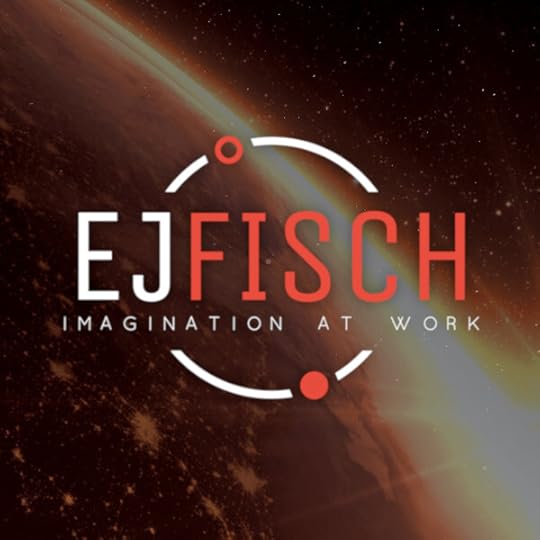

You can find me on all the major social media platforms—I’m most active on Twitter, Instagram, and Facebook. Hit me up! I always love chatting with readers and other writers, even if it’s about non-writing-related mutual interests like video games and movies.
Visit my website—www.ejfisch.com—to find everything you need to know about my work. Read excerpts from each book, find retailer links, check out concept art, and more.



